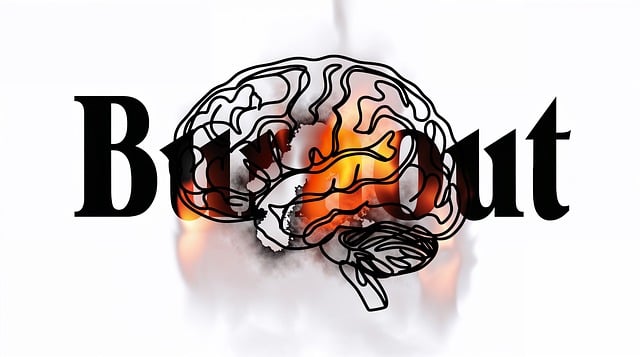Boulder Terminal Illness Therapy (BTIT) emphasizes the critical role of Crisis Intervention Teams (CITS) in managing intense crises, such as terminal illness, trauma, and severe mental health episodes. Through holistic strategies including mindfulness meditation and positive thinking, CITS resolve current issues while empowering individuals with lasting coping mechanisms. Effective CIT training programs in Boulder, integrated with BTIT knowledge, equip teams with theoretical understanding and practical skills. These programs focus on de-escalation techniques, active listening, and effective communication, vital for delivering high-quality mental wellness support. Regular evaluation, feedback, and targeted modules ensure continuous improvement, while public awareness campaigns destigmatize mental health crises.
Crisis intervention team (CIT) training programs are essential in equipping professionals to handle mental health crises effectively. This article explores the vital role of CITs, particularly highlighting Boulder Terminal Illness Therapy—a specialized approach that addresses end-of-life care needs. We delve into key components of successful training, including evidence-based practices and cultural competency. Additionally, implementation strategies and continuous improvement methods ensure CIT teams are prepared to navigate complex situations, offering a transformative impact on community well-being, especially in the context of Boulder Terminal Illness Therapy.
- Understanding Crisis Intervention Teams: Role and Significance
- Boulder Terminal Illness Therapy: A Specialized Approach
- Essential Components of Effective Training Programs
- Implementation and Continuous Improvement Strategies
Understanding Crisis Intervention Teams: Role and Significance

Crisis Intervention Teams (CITS) are specialized groups designed to provide immediate and effective support during times of intense crisis or distress. These teams play a pivotal role in helping individuals navigate through emotionally charged situations, such as terminal illness, trauma, or severe mental health crises. At Boulder Terminal Illness Therapy, we recognize the significance of CITs in fostering positive outcomes for those facing profound challenges.
The role of these teams extends beyond immediate intervention; they contribute to broader public awareness campaigns, encouraging a culture of empathy and support. By integrating practices like mindfulness meditation and promoting positive thinking, crisis intervention strategies not only address the present crisis but also equip individuals with coping mechanisms for future stressors. This holistic approach ensures that those in need receive comprehensive care tailored to their unique circumstances.
Boulder Terminal Illness Therapy: A Specialized Approach

Boulder Terminal Illness Therapy (BTIT) is a specialized approach that equips mental health professionals with unique tools to support individuals facing terminal illnesses. This program goes beyond traditional crisis intervention by focusing on the emotional and psychological challenges associated with end-of-life care. BTIT provides an in-depth understanding of the complex needs of both patients and their families, enabling professionals to deliver compassionate and effective support.
The training emphasizes a holistic view, integrating stress management techniques into the risk assessment process for mental health professionals. By learning to navigate the delicate landscape of terminal illness, participants gain valuable insights into improving mental wellness and enhancing communication skills. This specialized training ensures that professionals are well-prepared to handle the unique pressures and emotions that arise in these sensitive situations, fostering a supportive environment for all involved.
Essential Components of Effective Training Programs

Effective crisis intervention team (CIT) training programs are multifaceted, ensuring that teams are well-equipped to handle a wide range of critical situations. A comprehensive curriculum should incorporate several essential components to foster competent and confident responders. Firstly, theoretical knowledge is vital, providing trainees with an understanding of various crises, their causes, and potential interventions. This includes learning about terminal illness therapy in Boulder, where specialized training can help CIT members offer compassionate support during life-limiting conditions.
Secondly, practical skills are equally important. Role-playing scenarios, simulations, and real-life case studies enable participants to apply their knowledge in safe, controlled environments. These exercises should cover various crisis situations, from personal trauma to community outreach program implementation, ensuring the team is prepared for diverse challenges. Additionally, training should focus on de-escalation techniques, active listening skills, and effective communication strategies, all of which are cornerstones of providing quality Mental Wellness and Trauma Support Services.
Implementation and Continuous Improvement Strategies

Effective crisis intervention team (CIT) training programs are dynamic entities that require ongoing refinement and adaptation to meet evolving needs. Implementation strategies should focus on integrating CIT education into existing mental health service frameworks, such as those offered by Boulder Terminal Illness Therapy. This can involve collaborating with local healthcare providers, schools, and community organizations to ensure a comprehensive approach to crisis support. Regular evaluation and feedback mechanisms are crucial for identifying areas of improvement.
Continuous improvement initiatives can draw upon Mental Health Education Programs Design principles to develop targeted training modules that cater to diverse learner needs. Public Awareness Campaigns Development can also play a pivotal role in enhancing understanding and destigmatizing mental health crises among the general public. Moreover, incorporating Conflict Resolution Techniques into CIT curricula equips team members with invaluable skills for de-escalating high-tension situations, fostering a safer environment for all involved.
Crisis intervention team (CIT) training programs are invaluable tools for equipping professionals with the skills to navigate and de-escalate critical situations. As highlighted by Boulder Terminal Illness Therapy, specialized approaches can revolutionize care, especially in end-of-life scenarios. Effective training integrates essential components like role-playing, peer feedback, and evidence-based practices. By implementing these programs and fostering continuous improvement, organizations can enhance their CIT’s preparedness, ultimately providing better support to individuals facing life crises.













